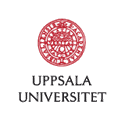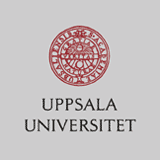Clinical Epidemiology (1.5 hp), 1.5 hp
| Kursnummer | 22 |
| År | 2023 |
| Typ | Methodcourse |
| Spår | - |
| Max antal deltagare | 25 |
| Sista ansökningsdag | 2023-06-30 |
| Språk | En |
| Kursansvarig | Hannah Brooke |
| Institution | Department of Surgical Sciences |
| Besöksadress | |
| Postadress | |
| Datum | 11-15th September 2023 |
| Lokal | In-person at BMC, Uppsala University |
| Kurslängd | 1 week full-time |
| Kursrapport | |
| Kursplan |
Beskrivning
This course will give a deeper knowledge in clinical epidemiology. Where epidemiology general deals with aspects of study design of observational studies in general, clinical epidemiology relates to those aspects in epidemiology related to patients and clinical care in terms of prevention, clinical impact, diagnosis, prognosis and treatment.
The course is aimed at PhD students, post-docs and researchers in the clinical medical field with basic knowledge in epidemiology. Maximum number of participants: 25. PhD students from Uppsala University will be given priority. The course will be held in-person over 5 full days (1.5 credits) 11-15th September. A final schedule will be distributed in the weeks before the course.
Inlärningsmål
This course in Clinical Epidemiology will focus on the quantitative (epidemiological and biostatistical) study of problems that clinicians and clinical epidemiologists may face in their work.
Students completing the course should be able to understand:
• Clinical measurements, including biological parameters, scales and indices
• Consequences of variation in medical data
• Measures of risk, association and agreement
• Studies of prognosis, including estimation of risk and validation of prediction models
• Studies of screening and prevention
• Common biases in studies of etiology, prognosis and treatment efficacy
Students completing the course should be able to
• Use measures of risk, association and agreement in both research and clinical settings
• Analyze and interpret published data regarding prognosis and risk prediction
• Analyze and interpret studies of screening and prevention
• Analyze and interpret studies of medical interventions
• Apply studies of etiology, prognosis and treatment efficacy in clinical settings
Innehåll
Lectures will cover each topic described in the learning outcomes. In workshops, students will work in groups discussing different aspects of published papers or completing exercises. The teacher, Professor John Baron, has long experience of clinical epidemiology and randomized controlled trials that is rarely found in Sweden. With an interactive approach, students will have the opportunity to influence the topics covered, within the framework of the learning outcomes.
Undervisning
The course will be given in English.
The course merits 1.5 higher education credits (högskolepoäng) and a certificate of attendance will be awarded.
Your application should be written in English and should include a brief project description and a summary of any courses or equivalent experience you have in epidemiological and statistical methods.
Examination
Active participation in at least 80% of lectures and workshops is required to pass the course. Additional assignments will be required to compensate for any missing attendance.
Litteratur
Clinical Epidemiology: The Essentials. Fifth edition. Fletcher RH, Fletcher SW, Fletcher GS. Wolters Kluwer, 2012.
Additional articles and material will be distributed prior to and during the course.
Lärare
John A. Baron, MD, MS, MSc, Professor Emeritus of Medicine and of Epidemiology at the University of North Carolina, and Professor Emeritus of Medicine and of Epidemiology at the Geisel School of Medicine at Dartmouth, and Guest Professor at the Department of Surgical Sciences, Orthopedics, Uppsala University. He has great experience in both large-scale clinical trials and advanced epidemiology.
Kontakt
For questions regarding the course, please contact Hannah L Brooke, Department of Surgical Sciences, Uppsala University (hannah.brooke @ surgsci.uu.se).


